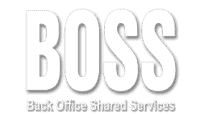Ineffective leadership can significantly undermine a team’s success, often not due to a single error but from an accumulation of multiple small missteps. This week, we will explore various actions or inactions that may be eroding your authority and effectiveness as a leader within your organisation. Such erosion could result in decreased productivity, wasted time, and the potential loss of employees who might feel their talents are better utilised elsewhere, possibly with competing firms.
You don’t encourage your employees to be human at work
It is impractical for management to dedicate extensive periods of the workday to address personal discussions; nevertheless, it is beneficial to take a moment to inquire about significant life events affecting employees, such as a child’s first day at school or their performance in bowling semi-finals.
Employees spend a substantial portion of their waking hours at work. Their satisfaction and productivity are enhanced when they feel acknowledged as individuals rather than mere components within an organisational structure.
Furthermore, understanding employees on an individual level provides valuable insights into their career aspirations and motivations. This knowledge can guide managerial strategies to better align with both employee fulfilment and company objectives.
You don’t apologise/admit when you don’t know something
It is impractical to allocate extensive time during the workday to address personal grievances of employees, yet it is beneficial to spend a brief moment inquiring about significant life events, such as a child’s first day at school or the results of their bowling team in semi-finals.
Employees dedicate a substantial portion of their waking hours to their roles. When they feel acknowledged and valued not merely as functional components but as individuals, their satisfaction and productivity invariably increase.
Furthermore, understanding your employees on an individual level provides valuable insights into their career aspirations and motivations. This knowledge can enhance workplace relationships and contribute to a more cohesive corporate environment.
You place your employees’ focus on budget rather than on milestones
It is essential to maintain control over budgets within your organisation to prevent any fiscal discrepancies. However, prioritising budgetary concerns excessively may lead employees to focus more on financial constraints rather than their substantive contributions towards the broader objectives of your firm.
Encourage your team members to concentrate primarily on their work and the significant milestones that advance the company’s overarching goals. Budgets should be managed effectively but can be adjusted with minimal intervention when necessary. This approach ensures that budget oversight does not overshadow the important creative and strategic input from your staff.
You leap before you look
In the realm of leadership, there is an inherent tension related to time management—each moment delayed in decision-making can seemingly diminish opportunities for organisational growth, profitability, or securing a top-tier candidate.
Yet, failing to allocate sufficient time to thoroughly analyse available data may result in even greater losses. Consider the scenario where swiftly hiring a highly competent candidate might appear advantageous before another competitor does so; however, post-hire it becomes evident that despite strong qualifications on paper, the individual’s negative demeanour undermines team morale.
Such situations could be preemptively mitigated by dedicating additional days for comprehensive evaluations with former employers. By doing this, one not only preserves the workplace atmosphere but also avoids the financial and operational burdens associated with terminating employment and initiating another recruitment process.
You don’t celebrate victories
Failing to acknowledge and celebrate team milestones or exceptional individual performance can have significant repercussions. Firstly, it represents a missed opportunity to elevate team morale. Secondly, the importance of these milestones may be perceived as diminished. If achievements within the firm are not recognized, they may seem trivial to the organisation and thus unworthy of additional effort.
You try to teach what you don’t know
If you are not well-versed in SMSF auditing, it is advisable not to attempt training others in this area. Imparting incorrect knowledge could lead to significant errors that may adversely affect your client’s interests and could also undermine your professional credibility.
You don’t take advice
It is imperative that your hiring strategies enable you to build a team that complements and enhances your areas of lesser expertise. Should this be the case, it stands to reason to value their counsel. Turning a deaf ear on those who have the know-how runs counterintuitive—especially when leadership should involve harnessing all resources at its disposal.
Contrary to the belief that leadership mandates a solitary stance above one’s team, effective leaders understand the importance of collaborative decision-making. While ultimate responsibility lies with you in making critical decisions, there is considerable merit in drawing upon the collective expertise within your ranks.
Furthermore, by embracing and acting on the advice given by your employees, you not only foster a sense of ownership but also encourage deeper emotional engagement with their roles and responsibilities. This heightened commitment can prove invaluable as they push harder towards navigating complex challenges successfully alongside you.
You don’t ponder before criticising someone
It is universally acknowledged that constructive feedback is vital, yet it must be approached with tact and reserve. Employees recognize the necessity of addressing performance issues; however, it’s important to maintain a balance. Excessive criticism can lead employees to operate in a persistent state of anxiety, fearing reprimand for any minor error, which can ultimately hinder their productivity. It is essential that critiques are reserved for significant concerns that necessitate a discussion with senior management.
Conversely, when it comes to positive reinforcement, one can be more generous. Regular acknowledgment and praise from leadership are crucial as they foster morale and encourage continued excellence among team members.
You don’t let your employees change your workflows
New employees often introduce innovative approaches to problem-solving. Disregarding their suggestions for processing specific types of files in favour of established methods may result in missed opportunities to enhance and expedite your workflows.
This is not to suggest that documented workflows should be modified indiscriminately based on every new employee’s suggestion. Rather, it advocates for a willingness to consider new ideas and discuss them with other team members involved in the workflow to evaluate potential improvements.
You hire purely for a skill-set
A candidate’s resume may meet all the required criteria in terms of skills, but it is crucial to remember that you are hiring not just for those skills, but also for the individual who possesses them. Therefore, attention should be given to a candidate’s extracurricular activities. Evaluate whether they engage in pursuits that suggest they have team-oriented qualities (such as participation in community service) and a comfort with taking risks (evidenced by involvement in adrenaline-based sports or activities).
You don’t base bonuses or rewards on creativity
It is inadvisable to base employee rewards solely on the completion of their fundamental tasks; salaries are intended to compensate for these basic duties. Allocating rewards for such tasks potentially conveys a lack of expectation for their fulfilment, which may inadvertently demotivate staff rather than encouraging them.
Conversely, rewarding employees who innovate or significantly enhance processes, such as refining a workflow or delivering exceptional customer service, can set a more impactful precedent. This approach not only acknowledges individual initiative but also motivates the entire team to seek opportunities that surpass standard expectations and contribute extra value to organisational goals.
You don’t fire negative employees fast enough
Negative employees can significantly hinder your organisation’s performance. Their presence can diminish the morale of their colleagues, consequently impacting productivity levels. Moreover, even if these employees do not interact directly with clients, their negative influence can permeate through to your client services indirectly through other team members.
As a leader, it is important to invest in the development of underperforming employees and help them align with the team’s objectives. However, it is equally crucial to discern between employees who require support and those whose behaviour may impede the growth of the firm. Recognising this difference is essential for maintaining robust organisational health and driving sustained growth.
You don’t practise what you preach
As previously discussed in our communications, it is essential to align actions with the company’s values. Promoting exemplary customer service as a core principle of your organisation becomes ineffective if leadership does not exemplify this stance in all interactions, including those behind closed doors.
The leader of an organisation plays a pivotal role in establishing its culture. It is crucial for leaders to embody the values they wish to see throughout their firm.
You’re a mentor in name only
Providing mentorship to less-experienced employees involves more than merely pointing out errors. It is essential to engage deeply in enhancing their skills, consistently providing them with comprehensive feedback on their performance each week.
This approach does not only support the employee’s development but also facilitates the cultivation of your ideal team members while fostering loyalty within your organisation. Furthermore, this regular interaction and assessment equip you with a clearer insight into an employee’s readiness for advancement, thereby ensuring that promotions are awarded when individuals are truly prepared to handle additional responsibilities effectively.
You play everything close to the vest
Have you experienced a sudden burst of inspiration? It’s crucial to share this with your team members for collaborative evaluation and refinement.
This approach moves away from the unproductive pretence of infallibility. Acknowledge that no one is always correct; transparency with your team enhances trust and efficiency.
Presenting the idea openly allows it, albeit potentially flawed, to be scrutinised constructively. If an idea lacks viability, early feedback will save valuable time that might otherwise be spent trying to develop it into something feasible. This time can instead be directed towards more promising projects.
Moreover, by circulating an idea among the team, you harness collective intelligence which can significantly accelerate its development through diverse input and perspectives.




